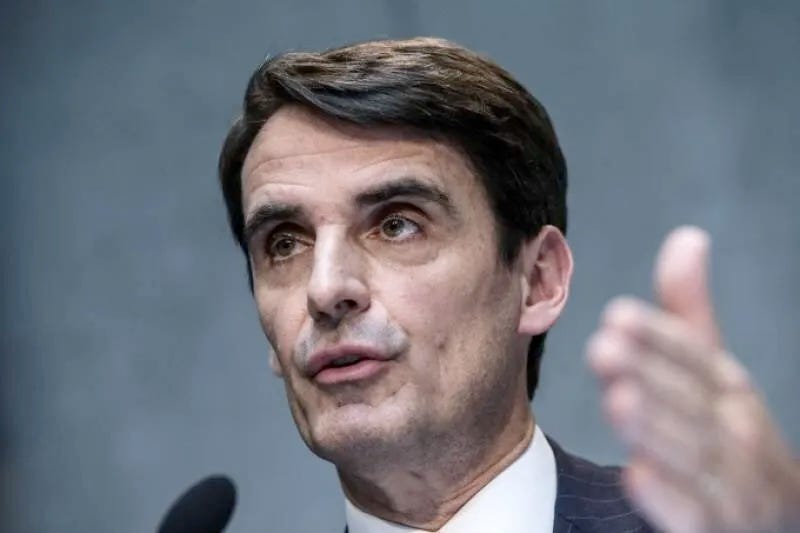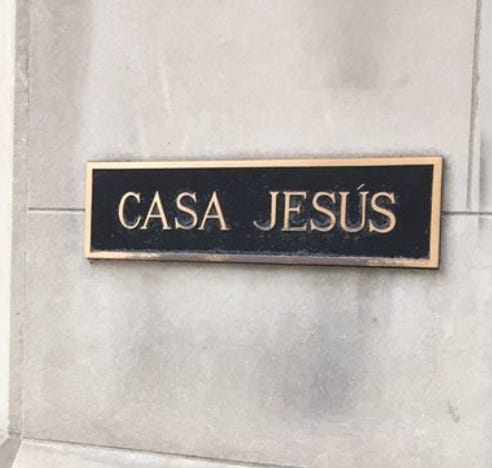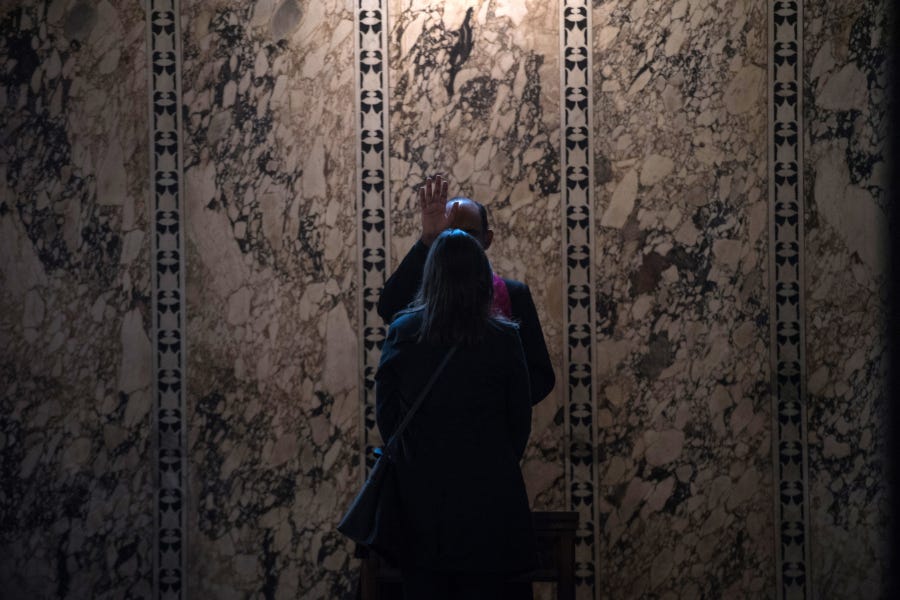Lawyers for the Institute for Works of Religion asked judges Wednesday to fine defendants in the Vatican finance trial nearly one million euros, for damages to the bank’s reputation.
The IOR, Vatican City’s only commercial bank, is a civil party to the case, pressing a lawsuit alongside Vatican City criminal prosecutors in the trial in which 10 former officials and investment advisors to the Secretariat of State are charged with financial crimes including extortion, fraud, embezzlement, and money laundering.
Lawyers for the bank argued in court Sept. 27 that investments made and authorized by Cardinal Angelo Becciu, formerly sostituto at the Secretariat of State, were illegal, a misappropriation of Church funds, and had damaged both the IOR and Pope Francis.
Identifying hundreds of millions of euros in Church funds managed by the Secretariat of State on behalf of the Holy See and the pope personally, lawyers for the bank said that the money had been invested by the secretariat even though “no authorization was given by the pope to Becciu,” according to court reports.
Lawyers for the IOR said that in the process of the trial, which opened in July 2021, Cardinal Becciu and his co-defendants had failed to produce any record of written authorization from the pope to invest the funds, some of which were operating profits from the IOR and some private discretionary funds of the Holy Father, via banks in Switzerland.
These private papal funds, the lawyers noted, were distinct from the annual Peter’s Pence collection, which Vatican City prosecutors had previously charged were misappropriated, despite a lack of evidence to support that theory.
In response to the proceedings, lawyers for Cardinal Becciu released a statement Thursday, insisting that Becciu is innocent and calling the arguments against their client and the requests for damages “obvious.”
“The requests for compensation for damages advanced by the civil parties and, among them, by the Secretariat of State, are in line with the role typically played by them in trials,” the lawyers said.
“But Cardinal Becciu did not commit any crime and consequently did not cause any damage. His actions were always inspired by the protection of the Holy See. The trial demonstrated this clearly and therefore we trust in the third and impartial judgment of the Court.”
Becciu’s actions in and out of office at the Secretariat of State have been a principal focus of the trial. While the cardinal has routinely interrupted trial proceedings to assert his innocence and engaged in acrimonious exchanges with prosecutors, he faces 7 years in prison if convicted.
The court hearing Wednesday was the first since the trial reconvened after the summer recess. At the close of the previous session in July, prosecutors entered their final arguments and asked the judges to impose sentences totalling more than 70 years in prison and order the seizure of nearly 400 million euros in assets from the defendants.
In addition to this, the IOR argued Wednesday, the court should impose further fines amounting to 987,000 euros in damages to the bank’s reputation caused by the scandal. The Secretariat of State, which is also a civil party to the case against its own former officials and advisors, has filed claims for more than 130 million euros in damages.
Lawyers for the IOR also argued that while the bank and other financial institutions of the Holy See had suffered financially and reputationally as a result of the defendants’ actions, “the person offended by the conduct of the accused is first and foremost the Holy Father,” since the allegedly misappropriated funds, including IOR operating profits, were intended for discretionary papal use.
The bank’s lawyers also noted that Pope Francis has issued a number of legal changes, stripping the Secretariat of State of its role as asset manager for large portions of Vatican and papal funds and ordering all curial accounts and holdings transferred to the IOR.
The IOR’s top leadership, director Gianfranco Mammí and president Jean-Baptiste De Franssu, played a pivotal role in triggering the current trial.
In 2019, having acquired the London building at 60 Sloane Ave., top officials at the Secretariat of State applied for a 150 million euro loan from the IOR to refinance a mortgage attached to the property. Mammí and De Franssu rejected the loan application despite heavy pressure from the secretariat, including Cardinal Pietro Parolin, and reported the request as suspicious.
In previous trial hearings, Secretariat of State officials have admitted to ordering extra-legal retaliatory investigations against the bank’s leadership, and De Franssu has testified that the leaders of Vatican’s own financial watchdog offered to “protect” him if he approved a loan.
—
At the center of the case, and the initial focus of the criminal investigation which led to the current trial, is the hundreds of millions of euros invested by the Secretariat of State under Becciu’s leadership with the London based financier Raffaele Mincione in 2014 which culminated in the purchase of a London property for development in 2018.
As has been previously reported, the investment came in the form of loans from now-closed Swiss banks, leveraged against Church assets on deposit there and obscured from Vatican auditors via prohibited accounting procedures.
Those investments were discovered during financial audits of curial departments undertaken by Cardinal George Pell as prefect for the Dicastery for the Economy, and Libero Milone, the first auditor general of the Vatican, in 2017.
Pell and Milone detected the investments, and alleged attempts by Secretariat of State officials including Becciu to conceal them from outside financial oversight using accounting maneuvers outlawed under Vatican law.
Shortly thereafter, Pell left office on a leave of absence to successfully defend himself against accusations of sexual abuse, and Milone was forced to resign by Becciu under threat of criminal prosecution for allegedly “spying” on his private financial affairs.
While the Secretariat of State and Vatican City prosecutors now accuse Mincione of mismanagement and fraud in his dealings with the Holy See, Mincione has argued in court that he delivered value for money on the investments made with him and that enormous losses realized by the Vatican were the result of early withdrawal from his fund.
Shortly after Becciu was made a cardinal and promoted out of the Secretariat of State in 2018, his successor as sostituto, Archbishop Edgar Peña Parra, ordered the immediate withdrawal from Mincione’s fund.
As part of the settlement with Mincione, instigated by the Secretariat of State, the Vatican was to acquire ownership of the London building, one of the principal assets of the fund, while forfeiting the balance of its investment and paying additional financial penalties for early withdrawal.
Under Peña Parra’s direction, the Secretariat of State nominated Gianluigi Torzi to manage the conveyance of the building’s ownership. He is now charged with attempting to extort the Vatican for millions in the process.
The Vatican sold the building in 2022 at a loss of more than 100 million euros. The trial remains ongoing.




